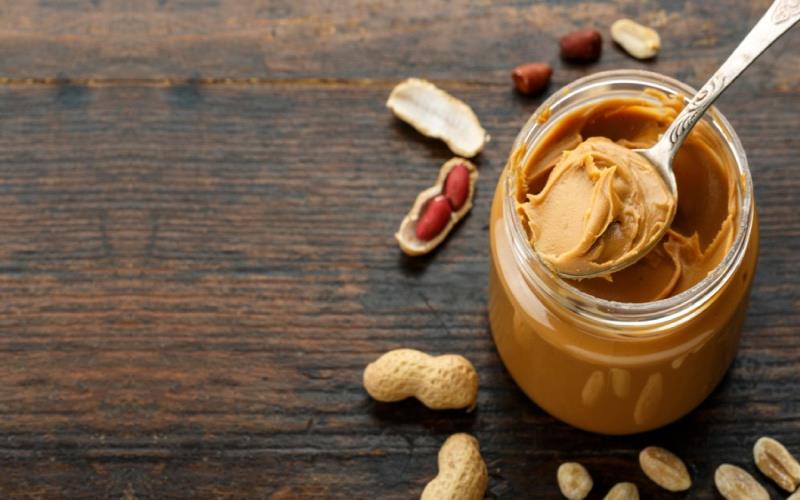Peanut butter has long been a beloved spread, finding its way onto toast, sandwiches, and into the hearts of food enthusiasts. But did you know that beyond its delectable taste, peanut butter can play a crucial role in helping you gain weight?
In this comprehensive guide, we will delve into the nutritional wonders of peanut butter, exploring its benefits, and providing practical tips on incorporating it into your diet for effective weight gain.
● Nutritional Value of Peanut Butter
Peanut butter is a powerhouse of essential nutrients. Packed with vitamins, minerals, and antioxidants, it offers a nutritional profile that goes beyond just its delightful flavour. Understanding these nutritional elements is key to unlocking the weight gain potential of peanut butter.
● Caloric Density and Weight Gain
One of the fundamental factors contributing to weight gain is the caloric content of the foods we consume. Peanut butter, with its high caloric density, becomes a valuable ally in your journey to gain weight. We’ll break down the numbers and show you why a spoonful of peanut butter can make a significant difference.
● Healthy Fats for Weight Gain
Not all fats are created equal, and peanut butter contains the good kind – healthy fats. Peanut butter is a popular food that contains healthy fats, and incorporating it into your diet can be beneficial for weight gain in a healthy way. Here’s a closer look at how these healthy fats contribute to weight gain and promote overall well-being:
- Caloric Density: Peanut butter is calorie-dense due to its fat content. Each gram of fat provides 9 calories, making it an efficient source of energy. Consuming more calories than your body burns is essential for weight gain, and the calorie density of peanut butter makes it a convenient option for those looking to increase their daily calorie intake.
- Monounsaturated and Polyunsaturated Fats: Peanut butter is rich in monounsaturated and polyunsaturated fats, which are considered heart-healthy fats. These fats play a crucial role in supporting cardiovascular health and reducing the risk of heart disease. While promoting weight gain, peanut butter contributes to overall well-being by supporting a healthy heart.
- Nutrient Profile: In addition to healthy fats, peanut butter contains essential nutrients such as protein, fiber, vitamins, and minerals. These nutrients contribute to a balanced diet, providing your body with the necessary building blocks for optimal functioning.
- Protein Content: While primarily known for its fat content, peanut butter also contains a decent amount of protein. Protein is essential for muscle growth and repair, and incorporating peanut butter into your diet can contribute to a well-rounded intake of macronutrients, supporting overall body composition.
- Satiety: The combination of healthy fats and protein in peanut butter can help increase feelings of fullness and satisfaction. This can be beneficial for individuals looking to gain weight by preventing excessive snacking on less nutritious, calorie-dense foods.
- Versatility: Peanut butter is a versatile food that can be easily incorporated into various meals and snacks. Whether spread on toast, added to smoothies, or used as a dip for fruits and vegetables, it offers a tasty and convenient way to boost your calorie intake.
● Peanut Butter as a Convenient Source of Calories
One of the beauties of peanut butter is its versatility. From smoothies to savory dishes, we’ll guide you on how to effortlessly incorporate this calorie-rich spread into your meals, ensuring a convenient and enjoyable way to boost your daily caloric intake.
● Addressing Common Concerns
There are often myths and concerns surrounding the consumption of peanut butter. We’ll debunk common misconceptions, addressing issues of moderation and balance to help you enjoy the benefits without worry.
● Fitness and Weight Gain
While diet plays a pivotal role, we’ll touch upon the importance of incorporating physical activity into your routine. Learn how peanut butter can complement your fitness goals and contribute to a well-rounded approach to gaining weight.
● Choosing the Right Peanut Butter
Not all peanut butters are created equal. We’ll guide you through the selection process, helping you choose the healthiest options that align with your weight gain objectives. Whether you prefer natural or organic, we’ve got you covered.
● Potential Risks and Allergies
As with any food, there are potential risks and considerations. We’ll address allergies and potential pitfalls associated with peanut butter consumption, providing insights and alternatives for those with specific health concerns.
Conclusion
In conclusion, adding peanut butter to your diet can be a game-changer in your weight gain journey. From its nutritional richness to the variety of ways it can be enjoyed, peanut butter offers a practical and enjoyable solution. Embrace the journey, savour the flavours, and watch as those numbers on the scale climb healthily and sustainably.
FAQs About Adding Peanut Butter for Weight Gain
Q: Can I gain weight with peanut butter if I have a fast metabolism?
A: Yes, peanut butter’s caloric density is beneficial for individuals with a fast metabolism.
Q: How much peanut butter should I consume daily for effective weight gain?
A: We’ll provide personalized recommendations based on your weight gain goals and individual factors. Visit Hyugalife for personal nutritionist recommendations by chatting with our in-house nutritionist.
Q: Are there alternatives for those allergic to peanuts?
A: Explore alternative nut and seed butter that cater to different dietary needs.
Q: Can I include peanut butter in a weight-loss diet?
A: While peanut butter is calorie-dense, moderation is key.
Q: Is it safe for children to consume peanut butter for weight gain?
A: Yes. It is safe for children to consume peanut butter but in moderate quantities especially monitor the sugar content and get the unsweetened varieties.

